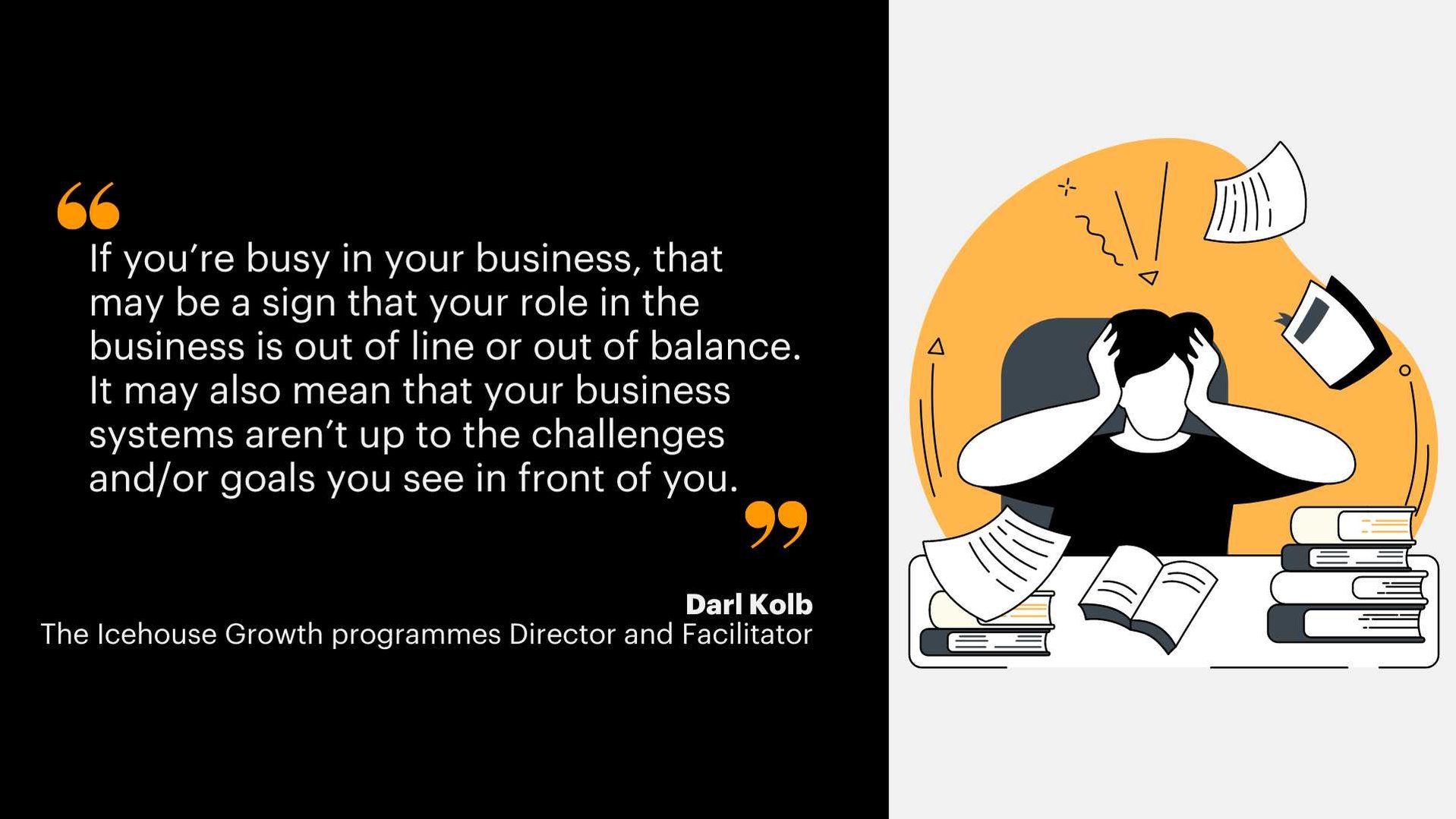Removing The Roadblock. You.

What can you do if the roadblock in your business is you, the owner? People want your time, your advice, your know-how and your experience. After all, you’ve seen the business grow as the captain of the ship, put in an incredible amount of hours and installed many of the good ideas, structures, systems and processes since day one.
Roadblock, bottleneck, barrier – this isn’t ‘bad’ ownership. Brilliantly successful owners are pulled in many different directions. They are the go-to person, the fantastic creative mind, the problem solver and wise counsel, the ultimate CEO – the Centre of Everything.

However, for small and medium sized businesses this is a problem, and can cause issues around delegation, communication, recruitment, culture, setting the present and future direction of the business, and one hundred other things.
Despite being keen to eradicate these issues, many Owner Manager Programme (OMP) alumni tell us that pre-programme, the big worry was, ‘well, if I’m going to take time out of the business, then who is going to work on the business in my absence?’ It’s a justifiable concern, by accident or design, deep-down, the self-aware owner knows they need to make the jump.
The other feedback we get from our alumni is that OMP helped solve many of the restrictive structural issues that created roadblocks within their business.
Stuart Gerring, General Manager at Parks Garage, highlights a problem even the best owners experience. “I think, as we grew quite rapidly, I was not passing jobs or tasks on to others, and had people that were from the trade or from the industry, coming off the tools to do a step up. But they were not really the perfect fit either.
“It made logical sense, but it did not work in practice. So we restructured again which allowed us to get the right people in to give me support so that I can focus on the right things.”
As part of OMP, Trudi Duncan, Managing Director of Gyro Plastics, completed a leadership profile and 360 degree feedback. “It was really interesting because the areas of weakness determined by the rest of the group through the feedback are definitely things which I recognise in my daily working life – around decision-making and delegation, for example.
“A symptom of wanting to be all over the business is that you think you can paralyse action by not making decisions quickly enough as you want to be part of all those decisions. OMP 53 has already shown me that there were things that I was getting frustrated with but couldn’t recognise that I was actually in control of them. My thinking was that they were things being done to me or happening to me.”
Often when owners come out of OMP they will put an organisational structure to their business, buoyed by a new confidence to create general manager positions, for example, and instead of trying to do everything themselves, they have suddenly built a structure for success.
“Often they’ve built the business from the ground up, might have started with three or four people, and then suddenly they've got 10. All they need is that external perspective to look in and say, ‘Okay, have you thought about doing this, or doing this a different way?’”, explains Kate de Lautour, Customer Growth Partner at The Icehouse.
“They often recognise that they need to make changes, but they don't know what they are, and they're just worried that they're not doing as well as they could be. They haven’t done a business management degree, for instance, and they want to make sure that they are doing the right thing by their staff and their families, which comes back to that confidence.”
Creating a better business can come by creating a better you. And when it comes to you in the business, Darl Kolb (faculty member of the University of Auckland Business School and director and facilitator of The Icehouse growth programmes since 2007) suggests OMP can give you a completely new outlook – especially if you feel you’re ‘busyness’ isn’t good for the business.
“If you’re busy in your business, that may be a sign that your role in the business is out of line or out of balance. It may also mean that your business systems aren’t up to the challenges and/or goals you see in front of you.
“Think of it as going up to the balcony and looking down on the dance floor. One of the things most participants cherish is spending time away from the day-to-day business and returning with new information, ideas and inspiration.”
For information on programmes, workshops and business coaching services from The Icehouse, click here.
For more business ownership and leadership advice, check out more of our resources.
Icehouse Alumni? For exclusive content on Icehouse Central, register now.
.jpg?height=500&name=What%E2%80%99s%20holding%20you%20back%20Volume%202%20(1).jpg)

